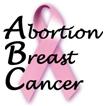Commentary on National Cancer Institute’s March 6, 2002 Fact Sheet
by Scott Moon, M.D.,
Mississippi Radiation Oncologist,
March 2002
When I used to hear the name "National Cancer Institute" or "NCI" words and phrases I would naturally associate with this institution included "serious science, cutting-edge cancer research, quality health care service and information". I routinely and confidently referred patients of mine to the NCI PDQ web-site without hesitation as I was sure that they would find the most up-to-date, scientifically sound information available. I am intentionally using the past tense because I have just read the most recent Cancer “Facts” updated 3/6/02 regarding the Abortion Breast Cancer (ABC) link on the NCI web site. One word that describes my impression of the information on this issue is “outraged”.
The ABC link was unfortunately completely ignored during my training years in Radiation Oncology from 1993-1997 so I will admit that I am by no means an expert on this topic. However, anyone with even a mild interest in this controversial issue will have little trouble unearthing a very statistically sound meta-analysis done by Dr. Joel Brind titled:
“Induced Abortion as an Independent Risk Factor for Breast Cancer: A Comprehensive Review and Meta-Analysis” In the Journal of Epidemiology and Community Health 481 (1996).
This analysis provides strong, scientifically valid evidence demonstrating a significant link from elective abortions to breast cancer comparable to other recognized factors such as early menarche, late menopause, and nulliparity.
In addition, Dr. Brind and others have provided well-reasoned critiques about the many weaknesses of the Melbye study. Even though the Melbye study is the primary evidence relied upon by the NCI review piece to assert that there is no link, they choose to gloss over the known weaknesses rather than dispassionately addressing them. I was left with the impression that the Melbye data is viewed by the NCI in an almost reverential manner. It is as if this study provided unimpeachable data nearly equal to a landmark randomized trial that we could all look to when making day-to-day clinical decisions when in fact nothing could be further from the truth.
Given the fact that there is a wealth of data to support an ABC link, and given the fact that the NCI statement addressing this issue completely ignores the information rather than challenging it in a well balanced serious manner, two conclusions emerge as likely explanations:
The author has either not done adequate research prior to posting such a sweeping statement dismissing the ABC link with such certainty, or there is a deliberate attempt to ignore the opposing view point because the author’s own point of view would not hold up to the challenge. Neither choice reflects favorably upon the NCI as a respected health care leader.
To summarize why this outrages me, by completely ignoring the known scientific evidence in support of the ABC link, the NCI is exposing women to significant harm in two different ways.
Number 1: Women who are considering an elective abortion and who are denied this critical information are being denied their right to an informed consent. They are, in effect, blindly submitting to an elective procedure that could result in the development of a cancer and potentially death.
Even if one is not convinced that there is a definite link between ABC, shouldn’t we err on the side of caution? Are we doing more harm by providing a woman with too much information or by censoring out information about a potentially life-threatening side effect from her decision making process?
Number 2: The Gail risk assessment model is used to help determine which high-risk women should be considered for prophylactic Tamoxifen therapy to prevent breast cancer. It incorporates factors with RR values < 2 including early menarche and nulliparity.
How many women are being denied the opportunity to be considered for this potentially life-saving prophylactic therapy by those who for whatever reason have chosen to ignore the significant RR associated with ABC link?
There is simply no justification for NOT addressing the weighty arguments and evidence regarding the ABC link head on and factoring in this very real risk factor into mainstream medical practice if and when it holds up under the intense scrutiny that any scientific position deserves. Until the NCI directly addresses the evidence submitted by Dr. Brind and others, statements contained in the NCI “fact” statement like:
“…The current body of scientific evidence suggests that women who have had either induced or spontaneous abortions have the same risk as other women for developing breast cancer…”
should be clearly labeled as “opinion” rather than fact.
Since such undeniable controversy continues to revolve around this issue, and since the stakes are so high regarding the potential impact on the health and lives of the millions of women in this country, I have a suggestion. Wouldn’t it be reasonable and morally responsible to have an open debate between the most knowledgeable scientists and physicians on either side of the argument followed by an updated and scientifically valid “fact” statement?
Scott D.M. Moon,
M.D. Radiation Oncologist
McComb, Mississippi

